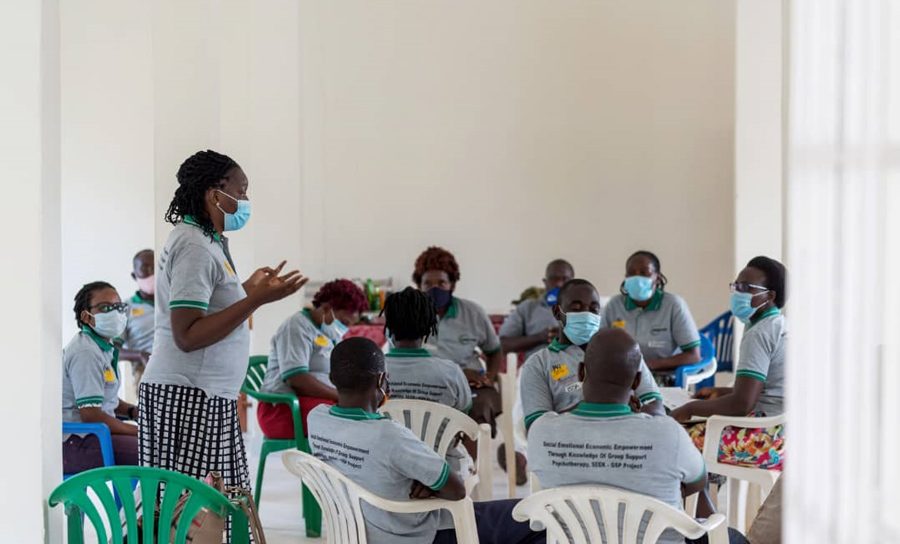Tag: depression
Unravelling the links between substance use and binge-like eating disorders

Binge eating disorder (BED) and substance use disorders (SUD) are characterised by maladaptive responses in the reward system of the brain. Dr Mary C Olmstead at Queen’s University, Canada, and Dr Katia Befort, University of Strasbourg, France, are using rodent models to explore how a part of the reward system, called the endocannabinoid system (ECS), affects the two conditions. They hope […]
Read More… from Unravelling the links between substance use and binge-like eating disorders
Obesity and inflammation: A recipe for depression in women

A team led by Dr Julie Pasco, Professor of Epidemiology at Deakin University and Barwon Health, Australia, analysed data from the longitudinal Geelong Osteoporosis Study over 16 years. The researchers discovered that metabolically unhealthy obesity, defined by low-grade inflammation in combination with obesity, puts women at higher risk of developing depression. These novel findings highlight inflammation as both a key […]
Read More… from Obesity and inflammation: A recipe for depression in women
Loneliness and social isolation: How can we protect our mental health and cognitive functions?

It is well known that social isolation can cause poor mental and physical health. Our recent global experience of compulsory social isolation during the COVID-19 pandemic has created a need to find new ways to prevent its devastating consequences, such as anxiety-induced cognitive decline, from manifesting. Dr Jing Liang and her team at the University of Southern California’s Mann School […]
Mental Health: Why is stigma increasing?

Efforts have increased to combat mental health stigma over the past few decades. But why, paradoxically, are rates of prejudice and discrimination rising for those with severe mental illness? Research reveals that the biomedical model of mental illness has increased rates of stigma for those living with schizophrenia and bipolar disorder. Despite small gains in public perceptions of people living […]
Finding a pathway from grief to peace

There is way too much overwhelming grief and loss today as a result of the COVID-19 pandemic, wars, and more. We need to find new vital pathways to transform the deep sadness of grief and loss into peace and hope. Kathryn Rossi, a clinical psychologist specialising in the use of therapeutic hypnosis and mind-body healing, shares the process she discovered […]
Hearing loss: who gains the most from cochlear implants?

Hearing loss can cause severe disabilities and impair daily life. Cochlear implants may be an option for those who experience extreme deafness, but there are long waiting lists for potential recipients in countries with limited healthcare options. Paula Greenham of Greenham Research Consulting has investigated what factors are most likely to result in improved quality of life for individuals requiring […]
Read More… from Hearing loss: who gains the most from cochlear implants?
The Benefits of Exercise on the Mind

Exercise has long been advocated as a way to enhance physical health, but it has also been shown to have several benefits on the mind. More recently, research has focused on how exercise can improve cognitive function. Over the past three decades, Drs Phillip D. Tomporowski and Caterina Pesce from the University of Georgia and the University of Rome, respectively, […]
Group support psychotherapy as a depression treatment in Uganda

Dr Ethel Nakimuli-Mpungu at Makerere University in Uganda works toward making therapy more culturally appropriate, particularly for people living with HIV and depression. She has developed a highly cost-effective group support psychotherapy programme that can be delivered by lay health workers and which has been shown to dramatically reduce depression symptoms and improve adherence to anti-viral medication in those affected. […]
Read More… from Group support psychotherapy as a depression treatment in Uganda
How sleep may be key to antisocial behaviour in young people

Sleep is vital to our health and yet remains understudied in young people and especially in its links to behaviours. Professor Alexander Vazsonyi at the University of Kentucky is focused on highlighting the role of sleep in problem behaviours in adolescents. His work on sleep unearths some important influences on deviant behaviour but also points to ways that young people […]
Read More… from How sleep may be key to antisocial behaviour in young people